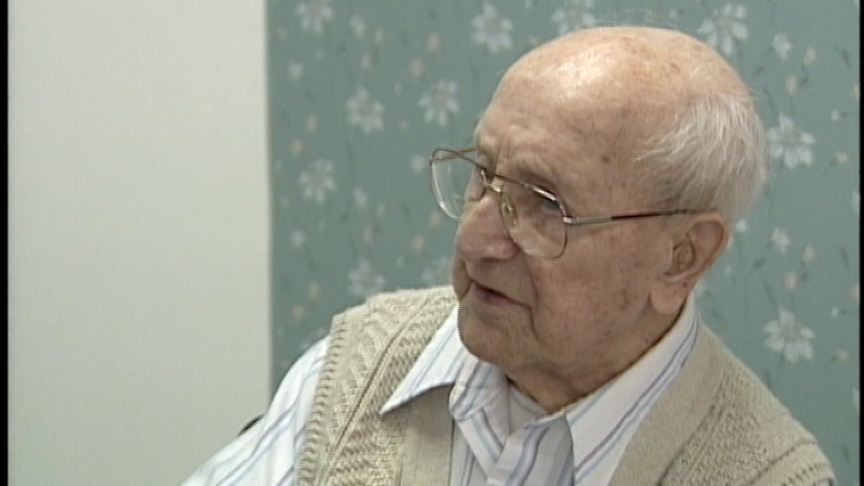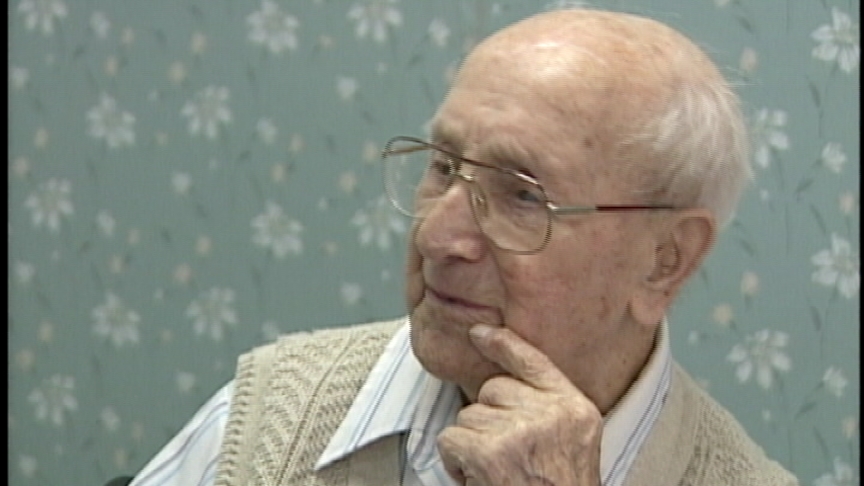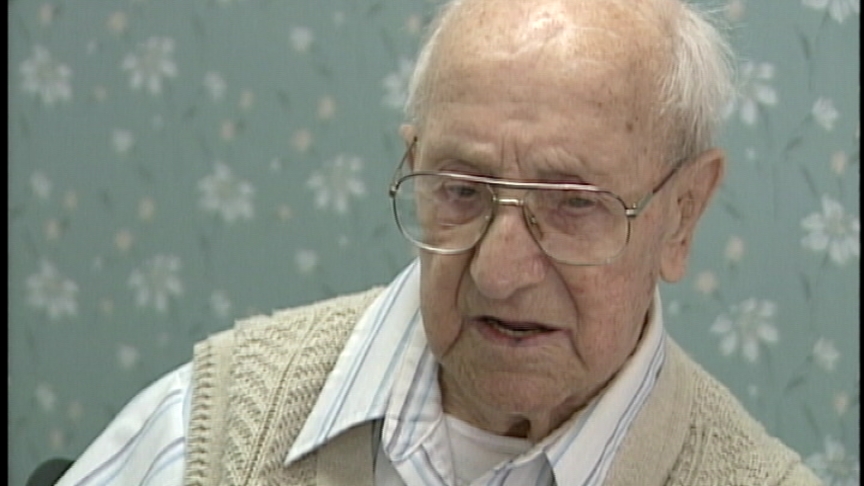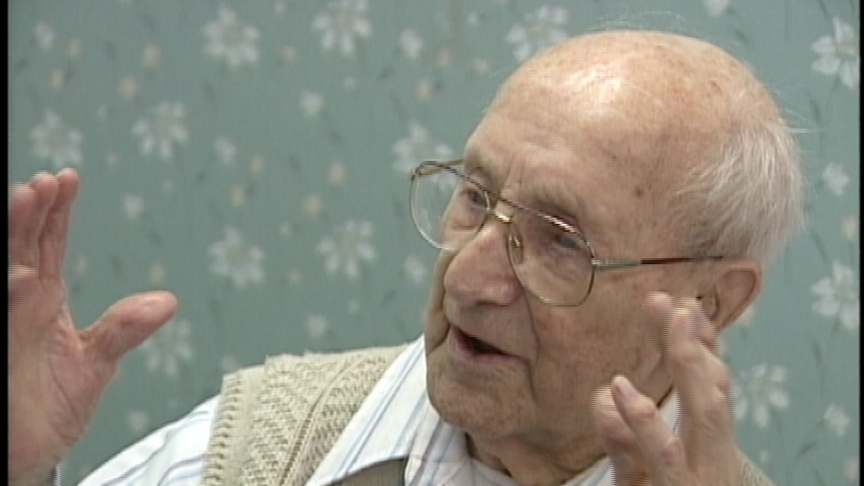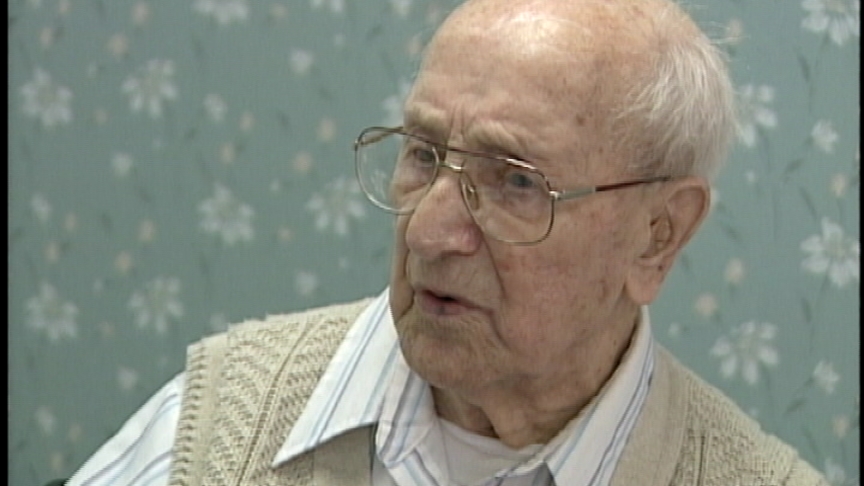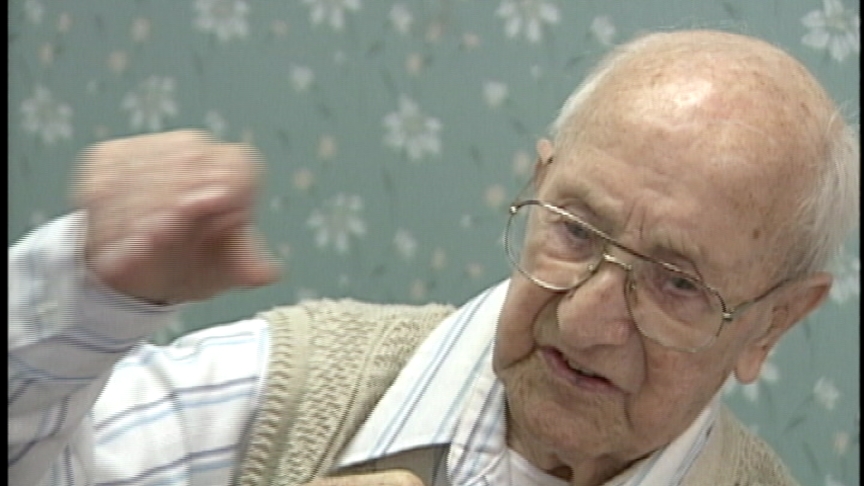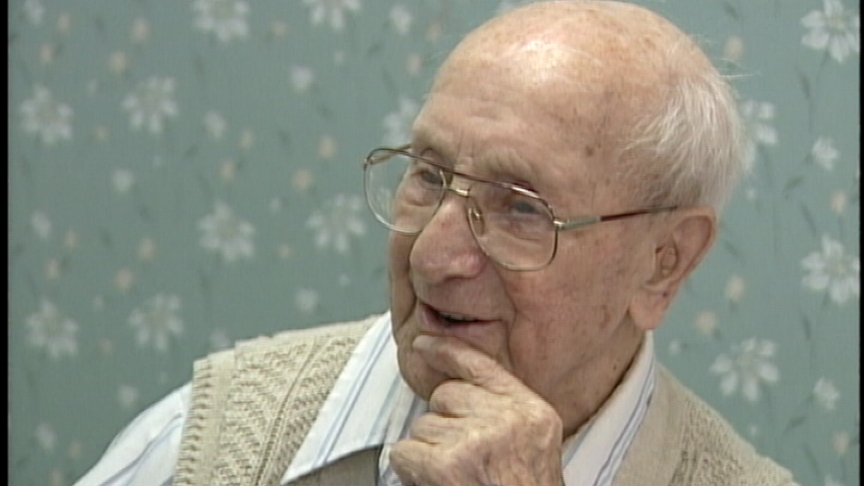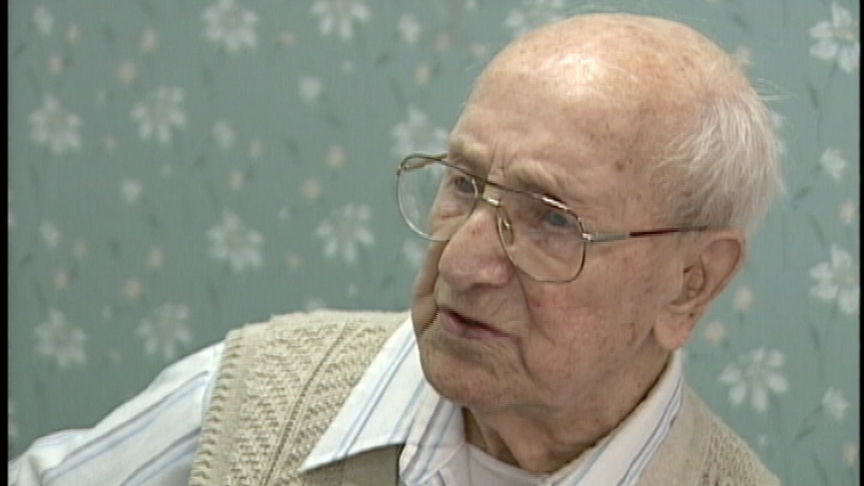Armistice and Six Days Grace
Heroes Remember
Armistice and Six Days Grace
We was supposed to rest six days to give
them six days the German Army back six days.
This was at the Armistice, you see.
The Armistice was signed and we was lucky
enough that we didn't have to go
over the next morning. So we had a rest,
we had six days. We rested there.
There was a kind of another city there,
like big as Mons and we went in there and
rested for six days then we started and we kept
going and when we got to Germany behind
them we was only two days behind them.
We beat them out four days.
Outside of that, we could have got a lot of
guns and things that they had picked up.
Related Videos
- Date modified:



